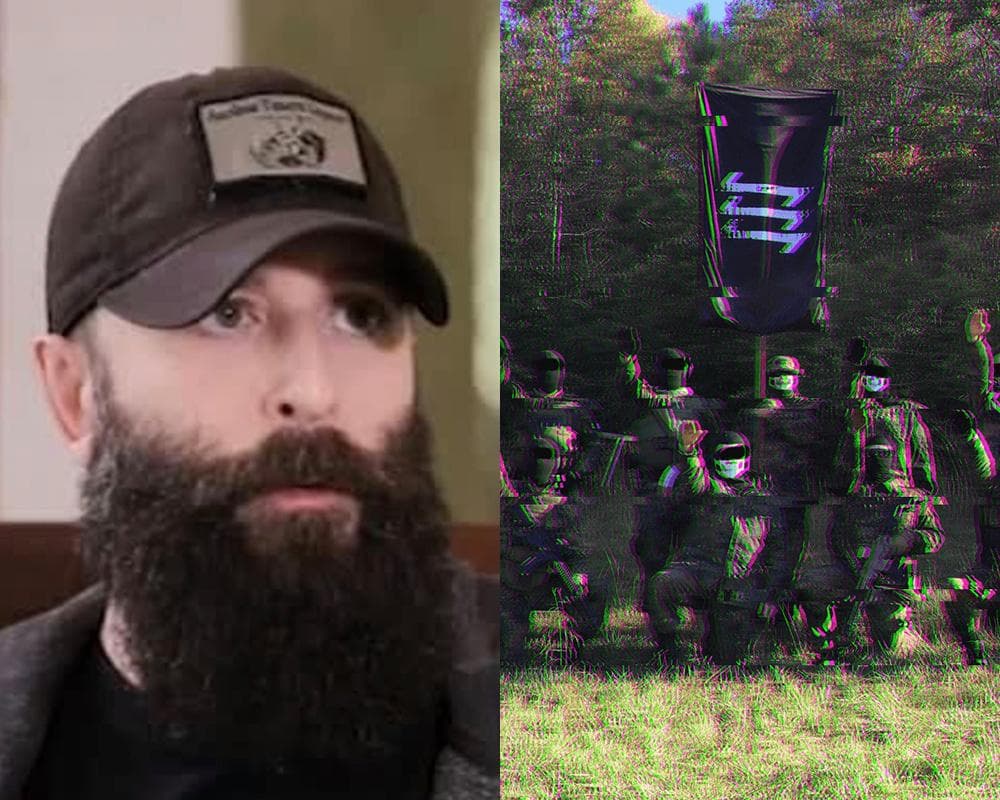Far-right group with links to neo-Nazi leader offers online military training

Click any word to translate
Original article by Ben Makuch
In the underworld of accelerationist neo-Nazis, where talk of attacks against western governments are commonplace, the spread of illegal weapons manuals and tradecraft on drone warfare are proliferating. Experts say, in some cases, that classes are being taught online with the input of leadership from proscribed terrorist groups with links to Russian intelligence.
Authorities have been warning, on both sides of the Atlantic, about the accessibility of drone technologies and military veterans on the far right with the knowhow to use them, presenting a grave national security threat.
“Offering military-style training materials, including drone tradecraft, to the extreme right indicates that this is for prepping purposes,” said Joshua Fisher-Birch, a terrorism analyst with close to a decade of experience tracking militant movements. “[To] improve the capacity of extremist networks to commit violence, or to encourage acts of violence specifically.”
Fisher-Birch says a well-connected and dangerous network called the Observations Group has emerged with a following among internationalist neo-Nazis and bills itself as a “paramilitary project to prepare people for modern warfare”.
Part of its operations, so far, is promoting militant course materials through its closed chat groups.
On its open Telegram channel, however, the group is already bragging about its online “military course” which it says covers “basic command training, and for those with no military experience, the course will cover the basics of preparing a soldier”, and can be purchased using a cryptocurrency wallet it uses for fundraising.
Observations Group continues: “You will receive the latest information on drones [...] Nato and [war] doctrines, techniques for engaging in war on both sides of the Russian-Ukrainian conflict [...] the integration of modern communications technologies and military concepts of future armies.”
The leader of the network told the Guardian that “I myself am in Russia” but that his “units are autonomous and located in different countries”. Its posts are in English and Russian, making clear it is not an American-based group, but says it is allied with an accused Kremlin spy and leader of the Base – an internationally designated neo-Nazi terrorist group, originating in the US.
“Good news: Norman Spear (leader of the paramilitary group ‘The Base’ and a former FBI analyst) is participating in the development of the first course as a military strategist,” it said in a post, referring to Rinaldo Nazzaro and one of the aliases he uses to mask his legal name.
Over the summer, former members of his group criticized Nazzaro for being an agent of Russian intelligence services – a charge he repeatedly denies – while the Ukrainian cell of the Base claimed responsibility for the July assassination of an intelligence officer in Kyiv.
Fisher-Birch explained how, “given Nazzaro’s likely connection to the Russian intelligence services or similar entities, it further indicates that the [Observations Group] project is potentially similarly connected”.
Nazzaro, reached on Telegram, did not deny his connections to the group.
“The Base has its own organic European network,” he said. “But we’re always open to collaboration with like-minded groups that recognize strength in unity.”
The Base, recently named to the European Union’s terrorist list, has been aggressively expanding on the continent in lockstep with an uptick in Russian sabotage operations, which have relied heavily on the online recruitment of operatives – often through Telegram.
Initially, Observations Group planned its course to be an in-person training camp in Czechia, but changed it to an online seminar where it is “already live”. The group declared new partnerships with an unnamed American extremist group and “in the future, our project will be able to officially conduct exercises and training sessions in the USA”.
“This situation,” Fisher-Birch said, “certainly benefits the Russian government.”
Lucas Webber, a senior threat intelligence analyst at Tech Against Terrorism, says the group and its connections to a real-world actor like the Base show it is part of an “urgent danger” on the far right.
“Extremist groups that learn from foreign war zones pose a dangerous contagion threat, channeling battlefield experience into domestic or transnational contexts,” he said, pointing out the use of cryptocurrency is another alarm bell.
“Relying on cryptocurrency for fees and circulating combat manuals masks the group’s financial operations and strategic plans, making detection and disruption more difficult for law enforcement.”
Multiple national security sources previously told the Guardian the FBI has major concerns about terrorist organizations eyeing the use of easily purchasable, first-person view drones for domestic attacks in the US. From Mexican drug cartels to Islamic State – drones are being incorporated into paramilitary strategies all over the world.
Evidence has already emerged that military-trained neo-Nazis in the US, with relevant drone skillsets, have begun advising others within the movement. A writer and alleged former marine has a popular Substack among extremists and claims to be a former member of the now-defunct Atomwaffen Division – another hyper-violent, proscribed terrorist group aligned with the Base and connected to murders in the US.
“I am a drone operator, one of the first in the infantry,” wrote the anonymous writer. “The future is cheap, 3D-printed drones with a [high-explosive] round zip tied to it.”
Webber believes accelerationists on the far right, who view acts of terrorism as a means of setting off a domino effect taking down world governments, are already implementing drones into potential operations.
“Preventing the shift from virtual coordination to tangible violence requires both monitoring of illicit financial flows and a commitment to taking down key digital channels that facilitate recruitment and training,” he said.
“Failure to intervene could allow these battlefield-inspired tactics to spread further, potentially leading to high-impact attacks against civilian or governmental targets.”